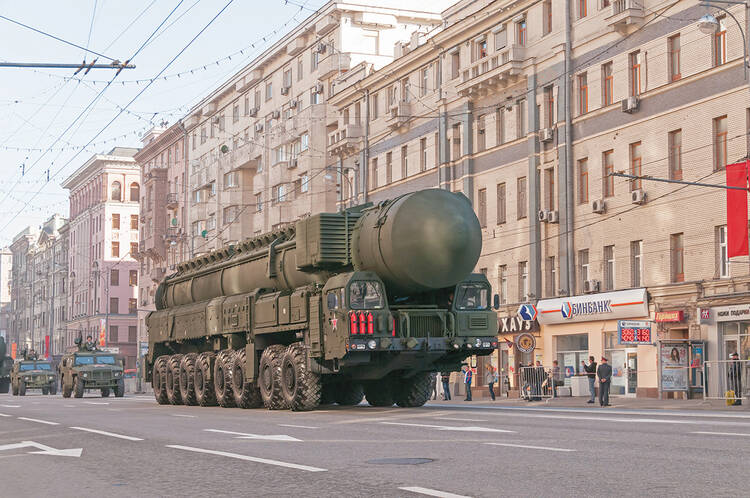The Russian countermeasures on proliferation followed quickly on the heels of a U.S. decision to suspend what had become fruitless negotiations toward a cease-fire in Syria. The setback does not bode well for near-term progress on U.S.-Russia disarmament, an effort that has been stalled for years after earlier decades of significant moves to reduce nuclear stockpiles.
In another setback this week to the international anti-nuclear movement, the United Nations’ highest court on Oct. 5 rejected nuclear disarmament lawsuits filed by the tiny Pacific nation of the Marshall Islands against Britain, India and Pakistan, determining that “the court lacks jurisdiction.” The groundbreaking suit was first brought to the I.C.J. by the Marshall Islands in 2014 against all the world’s nuclear powers. The international court had been viewed as a possible equalizing option for small nations hoping to force nuclear powers to make more progress on disarmament.
Though the court’s president, Ronny Abraham, cast the deciding vote to toss out one of the suits, he acknowledged that the Marshall Islands has a particular interest in nuclear disarmament “by virtue of the suffering which its people endured as a result of it being used as a site for extensive nuclear testing programs.”
A more positive development on nuclear disarmament occurred at the U.N. General Assembly on Sept. 28 when, despite arm-twisting and vocal opposition from nuclear powers like the United States, six non-nuclear countries—Austria, Brazil, Ireland, Mexico, Nigeria and South Africa—sent world diplomats a draft text that calls for a U.N. conference next year to draw up a treaty banning nuclear weapons. The text also urges countries to increase transparency about the risks of nuclear weapons, enact measures to reduce the risk of accidental or unauthorized detonations and raise awareness about the consequences of a detonation.
A U.N. vote on the text on Nov. 1 could send the resolution to the assembly in December.
As major nuclear powers prepare for modernization programs that could lead to a new nuclear arms race, activists around the world have been coming at the issue of disarmament from a number of different angles. In that “ban the bomb” campaign they have been enjoying the renewed interest and support of the Holy See and Pope Francis in disarmament and nonproliferation efforts.
Just a few days before the Russian snub on proliferation, Archbishop Bernardito Auza, the permanent observer of the Holy See to the United Nations, had argued at the United Nations that “nuclear arms offer a false sense of security” and described “the uneasy peace promised by nuclear deterrence” as a “tragic illusion.”
Addressing a General Assembly side event marking the International Day for the Total Elimination of Nuclear Weapons on Sept. 27, the archbishop said, “Nuclear weapons cannot create for us a stable and secure world…. Peace and international stability cannot be founded on mutually assured destruction or on the threat of total annihilation.”
He concluded, “It would be naïve and myopic if we sought to assure world peace and security through nuclear weapons rather than through the eradication of extreme poverty, increased accessibility to health care and education, and the promotion of peaceful institutions and societies through dialogue and solidarity.”








